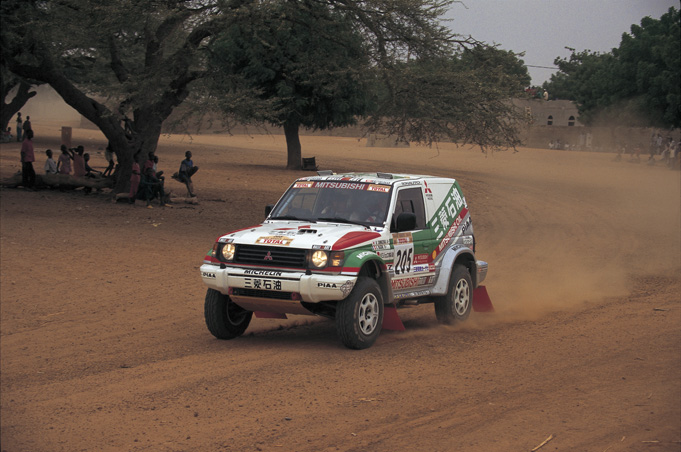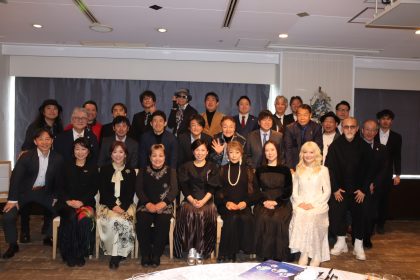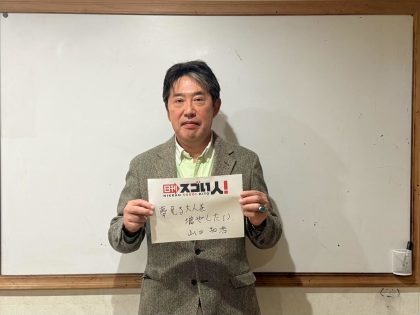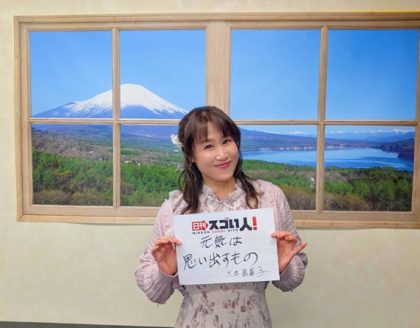
DAY2( read DAY1)
Without blaming others, fighting on without mentioning anything lacking.
E: Today we will talk about Mr Shinozuka Kenjiro's transition from student to company worker, and his experiences during the difficult times which led to his entry into the Paris-Dakar rally. That is to say, we would like to give our readers a deeper understanding of the life that birthed the international legend, Mr Kenjiro Shinozuka.
E: The oil crisis was in 1973 right.
S: That's right. It was a really difficult time. It happened in only my 3rd year working for Mitsubishi.
Even after the oil crisis the regulations for exhaust fumes continued and car makers were attacked by the mass media.
Nearly all the Japanese rallies were cancelled, and the company made a shift so that their cars complied with the new regulations on exhaust fumes.
E: How long was the period of time where you couldn't enter any rallies?
S: All together it lasted for about 8 years I think. It was really tough.
At the time I couldn't see an end to it, for active rally drivers to not even be able to take part in a single rally each year was like a serious blow to the head.
E: For your age, this was the time when you normally have expected to be accruing tons of rallying experience.
S: That's right, all sorts of thoughts found their way into my head. There wasn't a place that was actively rallying, so a competitors normal options, like moving to another manufacturer were non-starters.
However, little by little trust was built among the public, and then one Saturday everything changed and we were allowed to race again.
E: Had there been a place where you could have actively rallied, and they reached out to you, would you have moved?
S: Yes, if they had reached out to me I would have most likely moved.
3 or 4 times Yokohama tires talked to me, saying, “we'd like to develop tyres for you, won't you try them out?”
E: This was whilst you were working for Mitsubishi?
S: Yes. Of course I went through the proper channels and got permission from Mistubishi, then took a period of leave.
E: in the current generation this is completely unthinkable (laughs). If you asked, you would be told that it was personal business.
S: That's right. The result was that I got 10th place in the world.
E: As expected. For Mitsubishi having a rally was a natural thought.
S: That's right. Of course they'd think of it. Mistubishi started selling the Pajero in 82, so at the start of course they weren't selling so many.
Originally it was a successor to the jeep, and was a special model used by the Japanese Self-defence Force, so only 200-300 were sold every month.
E: Really! So few? The same Pajero that would silence a crying child, right.
S: That's right. At the time, the plan was to be able to sell 500 a month. There was no money left for publicity, as it was a car made exactly to budget. The people who developed it would have liked to sell more of course. As though in answer to our prayers, someone mentioned the Paris-Dakar Rally in Africa, and suggested we enter.
By this time it was already 1983, but in Japan there was next to no know how about this rally, so we had to rely upon foreign drivers.
It was all conducted for us by a Pajero wholesaler in France. In 1983 they came 11th, but in 84 they came 3rd, then finally in 85 they won.
E: The Mitsubishi Pajero finally winning the Paris-Dakar Rally must be a date to remember!
S: But, Mitsubishi couldn't say anything, it all happened in far away Africa with foreign drivers, so in Japan it didn't make the news at all (laughs).
So in 86 Mitsubishi thought, unless a Japanese driver takes part it's meaningless, is there anyone we can have drive it?
Then they thought for a bit and remembered, “hey isn't there Shinozuka?” However, I had only taken part in short distance rallies, so for me it was a big jump.
E: If we think about it like track and field, it would be like a sprinter suddenly being asked to run a marathon, right?
S: That's right. However, they actually asked me (laughs)!
E: This was another daring decision.
S: I didn't even know what the Paris-Dakar Rally really was, so they said, “at first just completing it is ok. Don't feel downhearted.”
So with that I ran the race with a standard diesel engine and somehow completed.
E: Your first try at a long distance race, and you completed it!
S: That's right. So it became a question of what to do in 87. Of course I wanted to race again. However, using a slow car and just completing the race would be boring, so this time I asked to race in a fast car, and they agreed. However, they said. “because there's no know how in Japan, there's a car that one of the foreigners drove in the race last year, just gathering dust, so how about we service that one and then you can use it?” So they serviced it and then I drove it.
E: Wow, what a time!
S: That's right. So in that car I made 3rd place. However, in that age, there was often the feeling that, “Japan has become affluent, so wouldn't it be a great time to take up sports and enjoy our leisure time?” Further, in line with these views, the NHK (Japanese broadcasting company) made announcements like, “We would like to introduce everyone to big world wide events that are not well known in Japan.”
E: It sounds like society was moving in a good direction.
S: For example, the Tour de France. Next was the Americas Cup. These were amazingly popular events in oversea countries like America, New Zealand, Australia, etc., but next to no-one in Japan had heard of them.
In this environment, the daily and 20 day NHK picked up the subject of the Paris-Dakar Rally, giving announcements like, “Shinozuka Kenjiro came 2nd last year.”, “Today he has made his way back to the top.”
E: With such a chance, both your name and the Paris-Dakar Rally would together become more and more widely known in Japan, right.
S: In 87 I first truly fought to win the race, and at last in 97 I was the champion!
For those 10 years, everyday the words, “Mitsubishi”, “Pajero”, “Shinozuka” and “Paris Dakar” became like a daily chant on the NHK news, sports news, even “Good Morning Japan”, and their coverage of the event became a massive thing.
E: To have even the name of the activity continually called out on the NHK, is an exception among exceptions, right?
S: In a marathon the bib gets photographed right. There's no way they'd just be able to photograph your face right.
After introducing sports it can't be avoided, it's a strong decision. Of course they predicted an increase in complaints from the viewers, but it can't be helped.
And with that, as the words, “Pajero”, “Mitsubishi”, “Shinozuka” and Paris-Dakar were chanted the sales figures for the Pajero increased.
Originally we were selling 200-300 a month, but before we knew it that had increased to 2000-3000.
E: In just one month, that many? Seeing the mud smeared Pajero on tv must have been such a cool image. I'm sure the viewers couldn't help but imagine themselves driving it just like that, and so bought themselves one.
S: Therefore, at the time Shingo Tachi (a famous Japanese racing driver) said, “I can't think of any other reasons. Nothing else was happening, then suddenly like that everything changed and all I could think about was the Paris-Dakar Rally.” This was the first time that sales had increased due to a rally I think. It was spoken of in wider society and it became more and more popular, it was like the Paris-Dakar Rally had the seal of approval from Mito Komon (a famous Japanese drama), and life became easier for me. It was that feeling that I had achieved what I set out to accomplish.
E:That's destiny, something that you had been thinking about for a long time coming true, right.
S: That's right, that's right. So the next year in 88 I came 2nd. Therefore all I had left to do was win. Further, the cars were selling like hot cakes, and it was as though we could see the back of Nissan in the race for sales.
Mitsubishi was the 3rd biggest manufacturer, but it was my first time experiencing being this close to them.
E: You made a great contribution to Mitsubishi with your hard work, didn't you Mr Shinozuka.
You had a really large impact on the world, wherever you looked around the city you would see Pajeros driving, what an amazing situation.
The people working in sales must have been really grateful to you.
Therefore, I suspect that you got better working conditions right?
S: Oh, none of that changed at all.
E: What? Even after you risked your life for them?
S:I wasn't on any particularly high salary and I didn't get a bonus.
E: No way!
S: There wasn't a similar example in the history of the company, so there were no rules regarding this.he company didn't want to create any new rules.
My salary didn't change, and taking part in rallies was considered an overseas business trip.
Normally a company would pay for your hotel in the foreign country and also expenses right. However, it was a camp so there was no hotel or expenses!
Thinking about it now it was a bit of a loss.
E: Hahaha, as a normal person watching, until this very second I had thought of you, Mr Shinozuka, living a life of luxury where you don't have to do anything for yourself.
S: No, nothing like that. I even had to buy my home car, you know.
E: What? They didn't pay for it for you. That's also a surprise.
By the way, this is a bit off topic, but was there any kind of amazing leadership from within the company, that kept your working hard on the Paris-Dakar rally.
You shared a goal, but it seems to have been a very different environment.
S:Whether or not there was some sort of strong leadership, the reason I worked my hardest for them, was because I thought that if I didn't I wouldn't be able to get good results. Saying “we definitely can't do it”, became akin to swearing. On top of this, it was also bad to blame others for mistakes.
That is to say, the Paris-Dakar Rally takes 20 days, and servicing must be carried out even in sandstorms.
It's a truly unforgiving environment, where you must keep working throughout the evening and night. So there will definitely be mistakes.
Therefore, so that people don't lose heart, when a mistake is found you need to cover for your team mates, it's that type of competition.
For a driver it's different to a circuit race, as you will be driving in a place you can't see. If you make a mistake it could lead to a loss of 30 minutes whilst you fix it.
Of course mistakes will occur, but if you try to minimize them as much as possible you'll be able to achieve a good result. That's the type of competition the Paris-Dakar rally is. Therefore avoiding blaming others for losses is paramount.
E: In such a difficult situation being able to control yourself and be so understanding of others is truly admirable. Knowing this I feel like in my home life I too should stop blaming others and poking at their mistakes?
S: At home I'm always having fights (laughs).
E: Hahaha, is that so? That's very interesting! I'm relieved.
Interviewer:ALLES Writer:MAYA English:Tim Wendland
◆Shinozuka Kenjiro
1971 entered Mitsubishi Motors
1978 won at Dakar Rally
- Books “The Era of Rally Loving Idiots” (2006.Nikkei BP)
- Official HP https://shinozukakenjiro.jp/
- Shinozuka family owned hotel La VERDURA









